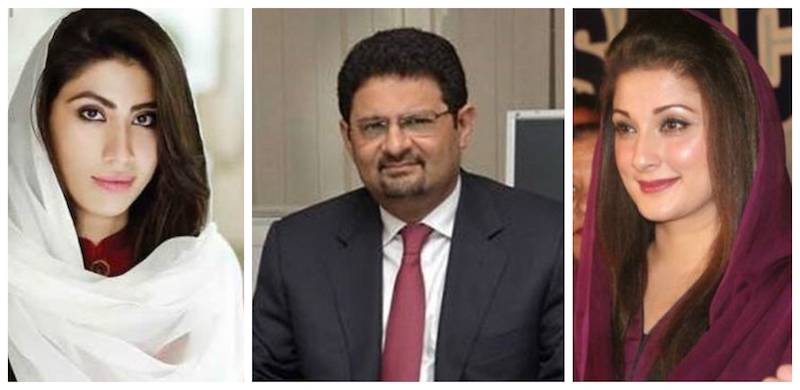
"Which female political leader would you prefer to share a ride with? "Which one do you think is prettier?" are some of the sexist questions asked on shows in Pakistan during rapid fire segments. No matter how accomplished or important the woman in question is, the discussion on such shows will revolve around her looks or the way she dresses -- all in the name of 'light-hearted talk'. Her views or expertise are irrelevant. The problem with such questions is that they belittle women by reducing them to their femininity or physical appearance. Questions like these may also put the interviewee in an uncomfortable position, which is unfair.
PML-N leader Miftah Ismail was recently faced with a similar situation during a show on Geo News when the anchor Shehzad Iqbal asked him as to who he thinks was better-dressed: Marriyam Aurangzeb or Hina Pervez Butt. Instead of answering this absurd question, Ismael responded that women in politics have to face difficulties so they shouldn't be talked about in this manner. He then smartly reworded the host's question and told him he can comment on the dressing sense of his male colleagues, Shahid Khaqan Abbasi and Ahsan Iqbal instead.
The PML-N leader's perfect handling of a sexist question on national TV is heartening. More politicians need to start adopting this approach. It is unfortunate that the anchor continued to demand an answer to his original question even after Miftah Ismail's clear refusal to entertain the question. However, the episode has provided a much-needed example of how to deal with casual sexism on television. It is about time channels developed a zero tolerance policy for sexism. Addressing casual misogyny and sexism and portrayal of women will prove to be the first step in ending discrimination against working women. Pakistani media must realise its responsibility in this regard.
PML-N leader Miftah Ismail was recently faced with a similar situation during a show on Geo News when the anchor Shehzad Iqbal asked him as to who he thinks was better-dressed: Marriyam Aurangzeb or Hina Pervez Butt. Instead of answering this absurd question, Ismael responded that women in politics have to face difficulties so they shouldn't be talked about in this manner. He then smartly reworded the host's question and told him he can comment on the dressing sense of his male colleagues, Shahid Khaqan Abbasi and Ahsan Iqbal instead.
The PML-N leader's perfect handling of a sexist question on national TV is heartening. More politicians need to start adopting this approach. It is unfortunate that the anchor continued to demand an answer to his original question even after Miftah Ismail's clear refusal to entertain the question. However, the episode has provided a much-needed example of how to deal with casual sexism on television. It is about time channels developed a zero tolerance policy for sexism. Addressing casual misogyny and sexism and portrayal of women will prove to be the first step in ending discrimination against working women. Pakistani media must realise its responsibility in this regard.
